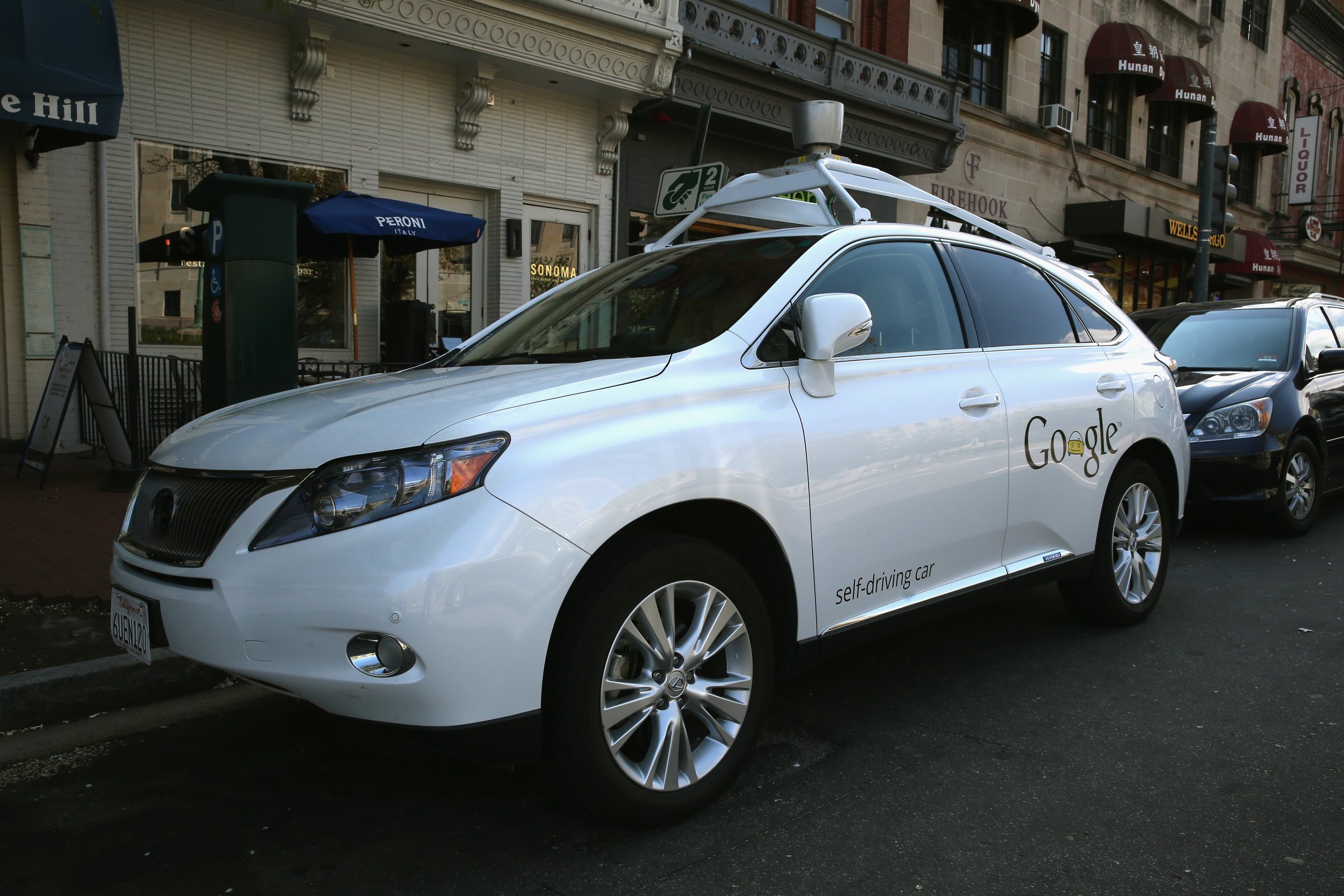
Car accidents can and do occur in self-driving vehicles, but you can’t just blame the computer, Google says.
The tech giant revealed in a post on Medium Monday that its fleet of autonomous vehicles have been involved in 11 minor accidents since first hitting the road six years ago. However, the company says the mishaps, which did not cause any injuries, were the result of human error.
“Even when our software and sensors can detect a sticky situation and take action earlier and faster than an alert human driver, sometimes we won’t be able to overcome the realities of speed and distance; sometimes we’ll get hit just waiting for a light to change,” Chris Urmson, the director of Google’s driverless cars program, wrote. “And that’s important context for communities with self-driving cars on their streets; although we wish we could avoid all accidents, some will be unavoidable.”
Seven of Google’s accidents involved being rear-ended, the company said. Two of the accidents were side-swipes, and one was a collision with a car rolling through a stop sign. Eight of the accidents occurred on city streets.
Google offered the additional data about its program following an Associated Press investigation that found three of Google’s driverless cars have been involved in accidents in California since September. An anonymous source told the AP that in at least one of the incidents, the car was in driverless mode when the accident occurred.
Google’s cars have driven a total of 1.7 million miles (combining manual and self-driven mileage), giving them an accident rate of about 6.5 per million miles traveled. That’s considerably higher than the 2.8 property-damage-only accidents per million miles traveled that involved passenger cars nationally in 2012, according to the National Highway Traffic Safety Administration. However, Google is quick to point out that a large number of fender benders and other minor accidents are never reported to police, making it hard to compare Google’s record.
Google has invested heavily in autonomous car technology. It’s racing other tech companies, such as Uber, as well as traditional car manufacturers to bring the vehicles to market. Urmson has said that self-driving cars could be ready for widespread use by 2020.
More Must-Reads from TIME
- Donald Trump Is TIME's 2024 Person of the Year
- Why We Chose Trump as Person of the Year
- Is Intermittent Fasting Good or Bad for You?
- The 100 Must-Read Books of 2024
- The 20 Best Christmas TV Episodes
- Column: If Optimism Feels Ridiculous Now, Try Hope
- The Future of Climate Action Is Trade Policy
- Merle Bombardieri Is Helping People Make the Baby Decision
Contact us at letters@time.com